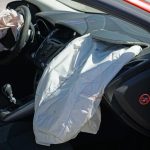
According to the law, there are speed limits in every state at which drivers are expected to drive, and to ensure adherence, these speed limits are put as signs on the road.
Drivers are expected to drive within the speed limit and not drive above it. If any driver is found driving above the speed limit, he/she will be ticketed. The Highway Patrol Officers have the right by law to issue this ticket to drivers.
However, other than getting a ticket for driving above the speed limit, can you get a ticket for driving under the speed limit?
Yes, you can get a ticket for driving under the speed limit except for a few exceptions where you can do so.
Can you Get a Ticket for Driving Under the Speed Limit?
Yes, you can get a ticket for driving under the speed limit. Although getting a ticket for driving under the speed limit is not common, it happens.
You should know that state laws vary when it comes to what is considered a speed limit. Driving under the speed limit means you are driving too slowly which could impede the flow of traffic and pose several risks.
As a matter of fact, it is illegal in some states to drive under the speed limit and if you are caught doing so you will be made to face serious penalties.
It is important to know that states are not necessarily against driving slowly, the issue is when you are driving excessively slow.
Can You be Fined for Driving too Slowly in Australia?
Yes, you can be fined for driving too slowly in Australia. While it is not illegal to drive under the speed limit, you may get a fine for what is considered driving abnormally slowly when you should not.
According to the Australian Road Rules, a driver must not be seen unnecessarily obstructing the path of another driver.
If you are driving too slowly, the possibility of obstructing other drivers and road users is very high. It is in such situations you will likely get fined for driving too slowly.
If you are driving slowly and thereby obstructing traffic, you could get a fine between $125 to $289 and a victim crime levy of $60.
In Australia, you could land in trouble with the police if you are driving at 20km/h in an 80km/h zone. This means here that the speed limit is 80km/h but you are driving below that.
A way to avoid getting a fine is to give way to other vehicles to overtake you if you notice a traffic build-up.
How Slow Can You Drive Under the Speed Limit in Texas?
Texas like other states has a speed limit that drivers are expected to adhere to, driving under this speed limit may or may not cause you to get a ticket.
In order to know how slowly you can drive under the speed limit, you should know what the speed limit is. The speed limit for the urban districts is 30mph, for alleys is 15mph, for the numbered state is 70mph, and for non-numbered highways 60mph.
The speed limit can also be as high as 85mph for rural highways. Going at a speed below any of these will mean you are going under the speed limit.
Driving 15 miles below the speed limit is considered slow in Texas and is a ticketable offense. It is therefore safe to say that you can drive between 5 and 10 miles below the speed limit without getting stopped or a ticket.
On some occasions, the decision to determine what speed is too slow is left to the highway patrol officer.
Can You Get a Ticket for Driving Too Slow in the Left Lane?
Yes, you can get a ticket for driving too slowly in the left lane except of course you have a good reason for driving too slowly. Reasons such as; the speed being warranted based on safety due to the condition at the time or preparing to make a turn.
The left lane is meant for passing and faster traffic while the right lane is for slower traffic. Therefore, driving too slowly on the left lane will most likely be considered to impede the flow of traffic.
In most states, there are laws in place that says: Any vehicle going at a speed less than the set speed of traffic moving in the same direction should be driven in the right lane except when passing or overtaking another car going in the same direction. Please note that there are exceptions to this law.
What is Your Violation if You are Driving Too Slowly?
When you are driving too slowly, especially on a fast lane, you can be charged with impeding the flow of traffic and failing to use the turnouts.
These are the two major charges a person can get for driving too slowly and under the speed limit. Other charges may be endangering the lives of other road users.
Can You Get a Ticket for Driving Too Slow in Illinois?
Yes, you can get a ticket for driving too slow in Illinois.
Illinois like other states has a law that prevents a driver from driving too slowly and impeding the flow of traffic. Drivers who are caught violating this law will get a ticket from highway patrol officers.
The speed limit in Illinois for interstate tollways is 65mph, for urban freeways 45mph, for highways and rural areas 55mph, for school zones 20mph, and for town areas 30mph.
Going at a speed lower than any of this may be considered driving slow or as deemed fit by the highway patrol officer and may warrant you getting a ticket.
When to Drive too Slow and When Not to
Although driving slowly has been said to be hazardous, there are times when you will need to drive slowly. They are:
- When the flow of traffic is slow
- When you are near a railroad track
- When you are behind or approaching a school bus loading or unloading school children.
- During bad weather
- When you can see an obstacle ahead on the road
- Animals are on or near the road
There are also times when you should not drive too slowly, such times are;
- When driving on the left lane which is known as the fast lane
- When other drivers are driving at a speed higher than yours
- When there is a sign indicating the speed limit on which you are expected to drive
Conclusion
If you are driving on an urban highway or any other highway for that matter, you should be on the lookout for the required speed limit, and for areas that do not have signs, you are expected to know what to do.









